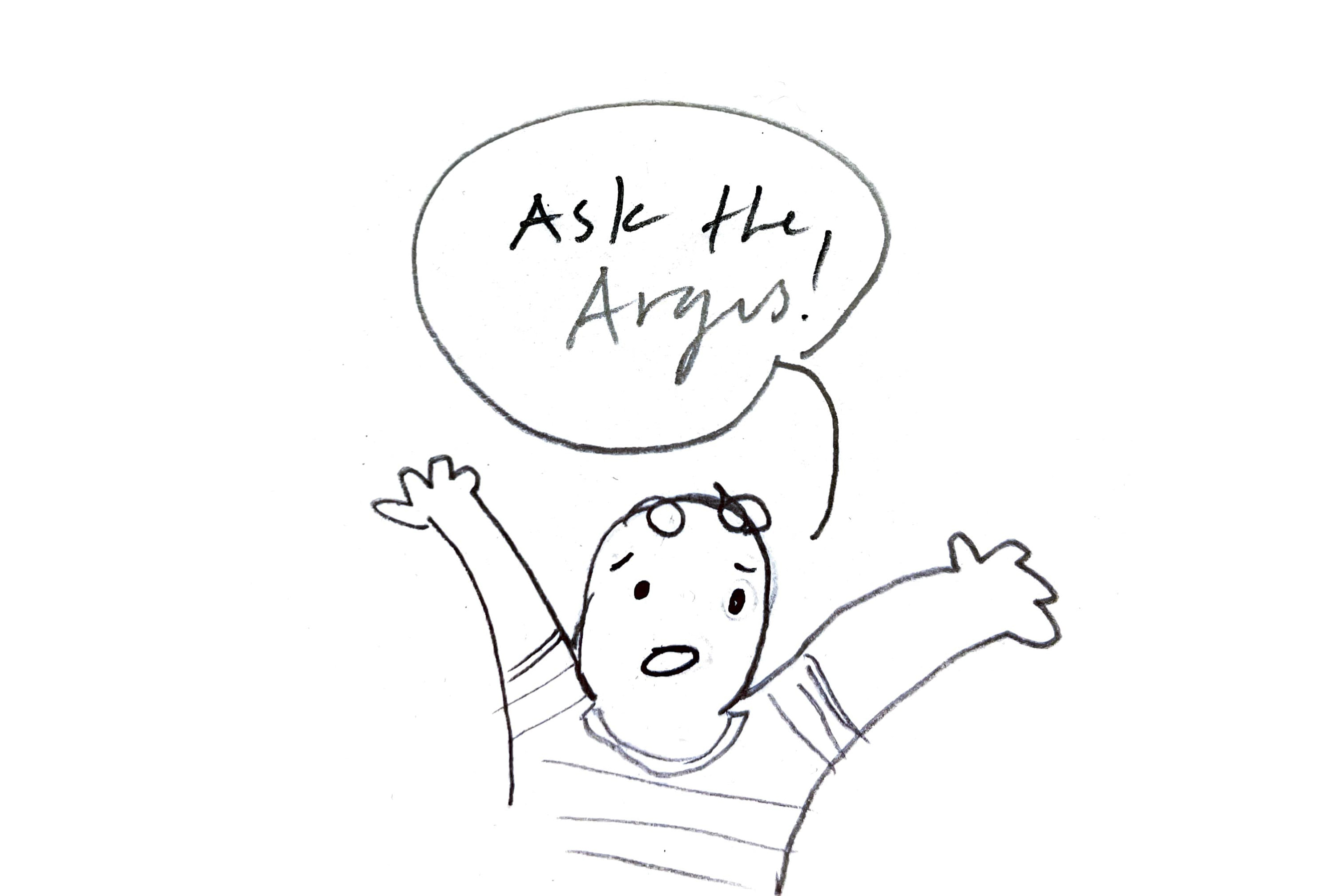
Welcome to Ask The Argus, a column brought to you by the Features section! Each week, we bring you the hottest advice from your wonderful, trusty, seasoned editors. Are you having trouble making friends? Is your relationship falling apart? Regretting your choice of major? Struggling with time management? Loud side or quiet side? Don’t fret: We’ve been there and are here to help.
My friend started dating someone new and, to be honest, I hate him. He’s disrespectful, doesn’t make any effort to get to know me or any of her other friends, and clearly isn’t good for her. Since getting with him she’s been a worse friend. But I worry that if I say something, she’d get mad at me. Should I ignore it or intervene?
You clearly want the best for your friend, and it must be really difficult to see her with someone that you dislike. You say that this guy is “disrespectful” and “clearly isn’t good for” your friend, but there are lots of things that this could mean. Is he disrespectful to her? To you? Both? When you say that he’s clearly not good for your friend, do you mean that you are concerned for her safety (either emotional or physical) in the relationship, or do you just not click with his personality? Depending on the answers to these questions, there are different ways to intervene or not. You should always say something if you are worried about your friend’s safety, but if it’s one of those situations where you’re not sure if you vibe with his personality, it might be something that your friend has to figure out for herself.
Chances are your friend will be way more receptive to feedback if you frame it as an issue that’s affecting your friendship specifically. Tell her how you feel about the situation instead of telling her how she feels or should feel. You don’t even have to frame it as a problem caused by her relationship: You could say, “Hey, I’ve felt like we’ve been disconnected lately and I would love to spend some time with you.” Your friend probably won’t realize there are any issues with your friendship if you don’t bring it up, so it’s probably best for you to talk to her about it. It’s not so much “intervening” as it is expressing your feelings and leaving space for your friend to express hers.
You might also consider the level of your relationship with this friend. If you are closer to this person, or you would consider them to be a best friend, then you could be more inclined to say something, especially if the romantic partner in question seems to be in danger of causing emotional or physical harm to them. Moreover, if this person has had a history of extremely problematic behavior, then maybe it would be best to say something. In short, it depends on the situation and the people. And if your friend might be in harm’s way, don’t hesitate to intervene.
It seems like everyone at Wes is either a double (or triple!) major. Do I have to double up in order to succeed?
There’s no doubt about it: People at this school are hyper-ambitious. But having a million majors doesn’t mean someone is more engaged, passionate, productive, or interesting. It’s all part of a toxic productivity culture where we will be labeled as “lazy” if we do not do everything we possibly can academically. If someone is happy with their two or three majors, that’s great for them! If that’s not your style, that’s equally admirable.
We have a saying at The Argus: “quality over quantity.” (I know, it’s so original!) We are dedicated to producing quality content every week, really taking the time to make our articles fabulous and not giving into the pressure to produce a bunch of mediocre articles. It’s the same with majors and classes. You might see everyone around you majoring in three things and taking six credits per semester, but that doesn’t necessarily mean that they’re fulfilled by everything they’re doing, or that it’s a healthy choice whatsoever. If there’s one major that particularly speaks to you and you’re not vibing with anything else, go all in on that and then you’ll have space in your schedule to take other classes that you may be interested in but may not want to commit to taking for a major. You’ll get to experience so many classes in so many departments, and all the triple majors will be glaring at you in envy.
Even if you have an interest in a specific area, don’t feel pressured to major in it. You don’t need to major in something in order to learn about it, and some majors have a lot of extra requirements that actually add stress to something you used to find fun. Just take whatever classes interest you! Some classes are for majors only, but you might be able to schmooze with the professor to get a seat anyway.
To submit a question to Ask The Argus, click here.


Leave a Reply